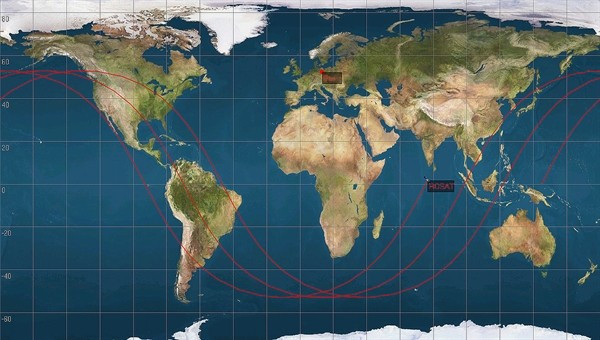Defunct German Satellite Falls on Earth but No Trace of Junk

The defunct German Roentgen Satellite (ROSAT) re-entered the Earth's atmosphere either late Saturday or early Sunday, depending on one's location. Pieces of the satellite torn off as it makes its re-entry had been expected to crash into the Earth, according to a German Aerospace Center report.
However, there is no immediate confirmation whether pieces of debris have reached the Earth's surface. Thus, there is no evidence yet to suggest the exact time and location of the impact, the agency said.
The agency has said that the ROSAT will re-enter at a speed of 28,000 kilometers per hour, which will break the X-ray observatory into fragments. Most parts are expected to burn up during re-entry. According to the latest studies, 30 fragments weighing 1.7 tons could crash into the Earth's surface. The largest single fragment of ROSAT that could hit is the telescope's heat-resistant mirror. In this event, the fragments could be travelling at a speed of up to 450 kilometers per hour.
Hours before re-entry took place, scientists confirmed the satellite debris was not expected over Asia, Australia, or Europe.
Launched June 1, 1990, the ROSAT was equipped with an X-ray telescope that over the years made exceptional scientific contributions, such as the first-ever full-sky survey with an imaging X-ray telescope and the surprising discovery that comets -- like other celestial objects such as the moon, stars, neutron stars, and galaxies -- also emit X-ray radiation.
The ROSAT's last mission was in 1999, after which most parts of the satellite became obsolete and were malfunctioning. During its mission years, the satellite was orbiting between 565 and 585 kilometers above the surface of the Earth. Since its decommissioning, however, the satellite has dropped to a distance of 327 kilometers.
The German space agency considers the likelihood of re-entry injury is extremely low. The odds of somebody on Earth being hurt by the ROSAT are 1 in 2,000, the agency said.
© Copyright IBTimes 2025. All rights reserved.



















